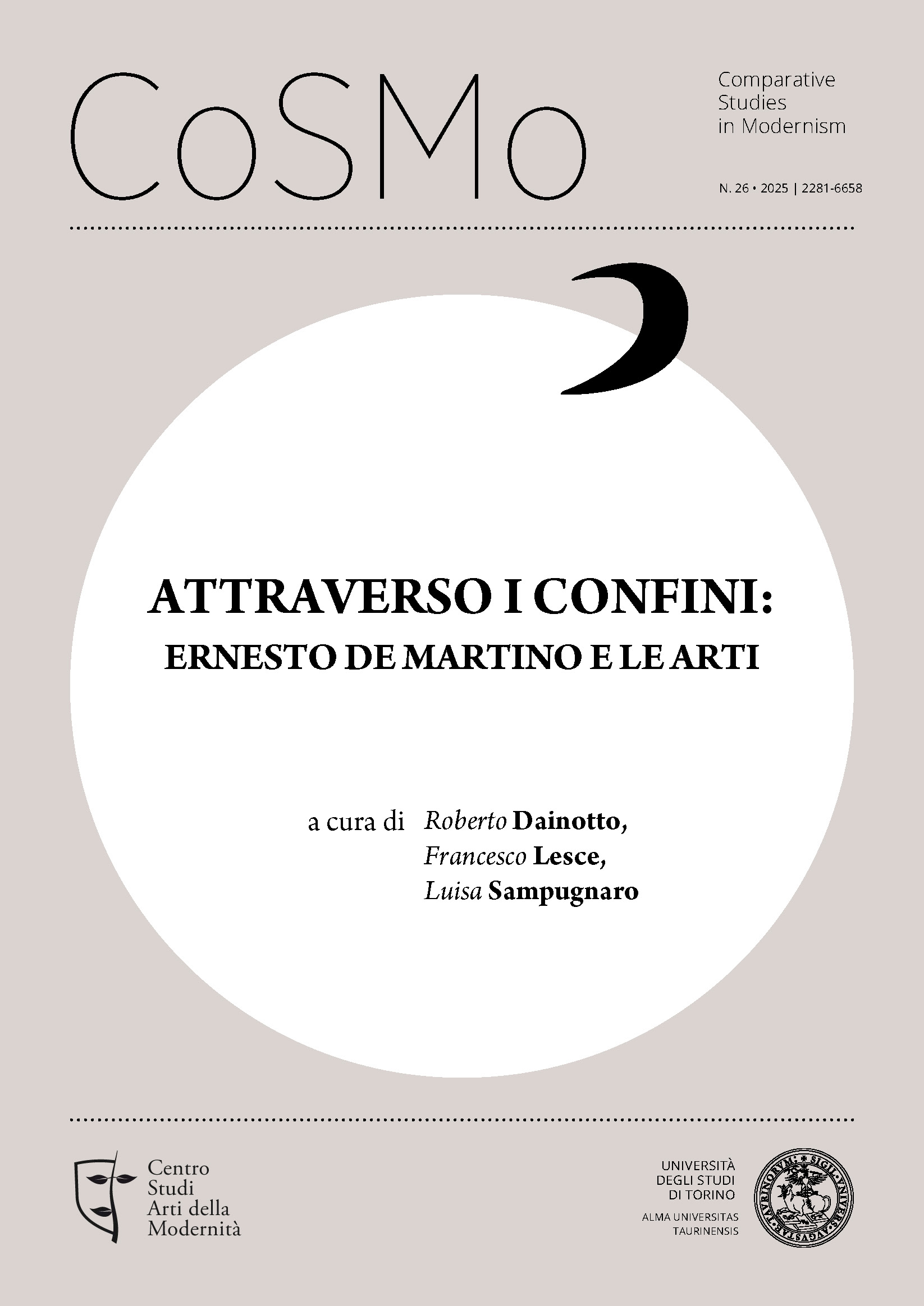Lamentation and Lay Symbolism in De Martino and Pasolini
DOI:
https://doi.org/10.13135/2281-6658/12169Keywords:
Progressive folklore, Historicism, Secular symbolism, Mourning and Lamentation, GramsciAbstract
This essay examines the complex intellectual relationship between Ernesto de Martino and Pier Paolo Pasolini, focusing on their shared yet divergent engagement with folk poetry, lamentation, and secular symbolism. Despite their common affiliation with Marxism and Gramscian thought, Pasolini and de Martino developed distinct methodologies: de Martino’s “progressive folklore” emphasized the political and existential dimensions of popular culture, while Pasolini interrogated the aesthetic and ideological layers of folk expressions, stressing their subordination to hegemonic forms. The study explores how Pasolini, through works like Canzoniere italiano and The Ashes of Gramsci, critically reworks de Martino’s historicism by emphasizing irreducible residues of human experience, mourning, and contradiction within history. It also highlights Pasolini’s secular reinterpretation of symbolic forms—such as the red flag—in poetry and cinema, contrasting it with de Martino’s anthropological framework. Ultimately, the essay uncovers a paradoxical affinity between the two thinkers: a shared concern for the existential crises of subaltern communities, and a mutual, though differently articulated, resistance to the abstraction and rationalization of human experience.
Downloads
Downloads
Published
Issue
Section
License
Authors keep the copyrights for their work and give the journal the work’s first publication copyright, which is at the same time licensed under a Creative Commons License – Attribution, which in turn allows other parties to share the work with an acknowledgement of the work's authorship and initial publication in this journal.
Content Licence

You are free to copy, distribute and transmit the work, and to adapt the work. You must attribute the work in the manner specified by the author or licensor (but not in any way that suggests that they endorse you or your use of the work).
Metadata licence

CoSMo published articles metadata are dedicated to the public domain by waiving all publisher's rights to the work worldwide under copyright law, including all related and neighboring rights, to the extent allowed by law.
You can copy, modify, distribute and perform the work, even for commercial purposes, all without asking permission.





